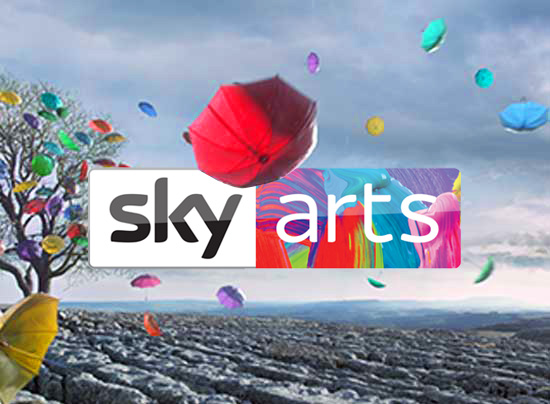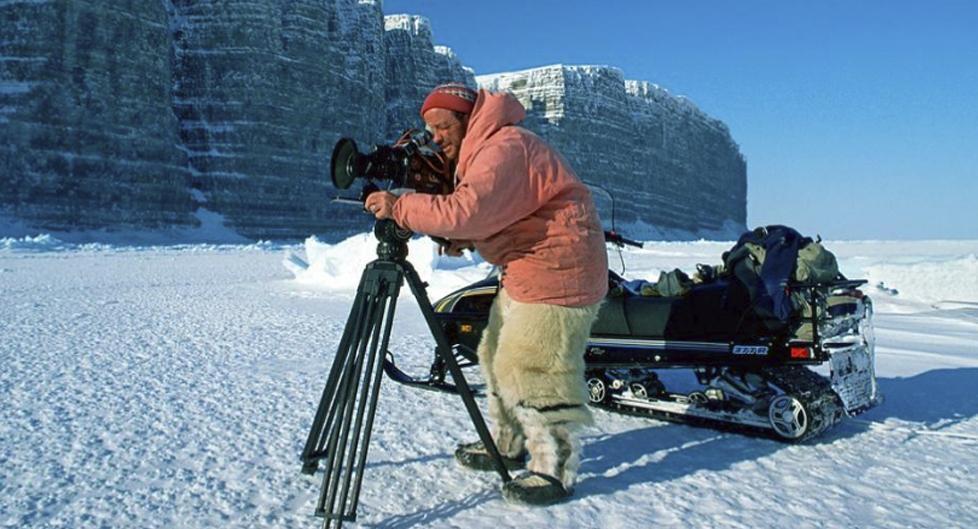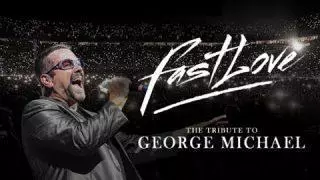DOUG ALLAN LOOKS BACK OVER HIS SUCCESSES AND SETBACKS DURING 35 YEARS OF NATURAL HISTORY FILM MAKING.
Doug Allan is an award-winning natural history photographer, documentary filmmaker, diver, author, and public speaker. He will be touring the UK this Autumn with his latest show It’s A Wrap, sharing his extraordinary filming challenges and successes.
Part retrospective, the show is also Doug’s perspective on climate change and its impacts on the world’s wild places. What change of emphasis and direction should we now be incorporating in wildlife films?
Doug says:
“There are big days when animals behave spectacularly right in front of your lens. And other quieter times when a deeper understanding reveals itself, a new insight into the environment and what’s alive there. I’ll be talking about these moments of truth and how they’re the biggest privilege of a wildlife cameraperson.”
“I’ve always balanced optimism with reality but the latest world climate report lays bare the need for radical, urgent action. There are solutions, and I want to talk about them. They’re all challenging, some are scary and depend on us making deep changes to how we live. The planet’s at a crossroads and we’re at the wheel. The next few years are going to be exciting.”
In his 35 years of filming, Doug’s been involved with more than 65 films, freelancing for the BBC, Discovery, National Geographic and others. He was principal cameraman on many prestigious award-winning programmes, making over 25 trips to the Antarctic and more than 30 across the Arctic, filming for series including Hostile Planet, Forces of Nature, Operation Iceberg, Frozen Planet, Ocean Giants, Human Planet, Life, Planet Earth, The Blue Planet and Life in the Freezer.
Doug speaks with passion and authority about the challenges of plastics and climate change. His topside and underwater filming – from the ice-covered polar seas to tropical coral reefs – combined with his scientific credentials as a marine biologist, have given Doug unparalleled first-hand experience and a unique long-term perspective on these issues which are now severely impacting our environment. He was one of the cameramen for, and appeared in, the award-winning documentary A Plastic Ocean.
Sir David Attenborough commented: “There’s just no one else who knows these frozen worlds as Doug does”
About Doug
Doug’s photographic awards include eight Emmys, five BAFTAs and five Wildscreen Pandas. He has twice won the underwater category in the Wildlife Photographer of the Year. He has three Honorary Doctorates in recognition of his camerawork and is an Honorary Fellow of the prestigious Royal Photographic Society and Honorary Fellow of the Royal Scottish Geographical Society. In 2018 he was awarded the RSGS Mungo Park Medal for his contribution to geographical knowledge in hazardous environments.
TOUR SCHEDULE:
- Winchester, Theatre Royal Tickets
- Ilkley, King’s Hall Tickets
- Buxton, Opera House Tickets
- Louth, Riverhead Tickets
- Yeovil, Westlands Tickets
- Morecambe, Platform Tickets
- Stafford, Gatehouse Tickets
- Guildford, Yvonne Arnaud Tickets
- Exeter, Northcott Tickets
- Paignton, Palace Tickets
- Folkestone, Leas Cliff Hall Tickets
- St Albans, Arena Tickets
- Newbury, Corn Exchange Tickets
- Tunbridge Wells, Trinity Theatre Tickets
- hrewsbury, Theatre Severn Tickets
- Loughborough, Victoria Room Tickets
- Frome, Cheese and Grain Tickets
- High Wycombe, Old Town Hall Tickets
- eamington, Royal Spa Centre Tickets
- Worcester, Huntingdon Hall Tickets
- Bristol, 1532 Theatre Tickets
- Bishop Auckland, Town Hall Tickets
- Teignmouth, Pavilion Tickets
- Cheltenham, Pillar Room Tickets
Interview with Doug Allan, wildlife filmmaker
What’s it like working with animals, close-up and in the wild? Tell us about your favourites.
I love working with big mammals; they’re so charismatic. Polar bears are wonderful: they have an amazing sense of smell, so even if they can’t see you they can smell you, they know you’re there. And marine mammals are particularly special to be with – whales are among my favourites. With marine animals you’re very much in their environment; and also, you need to get closer to creatures when you’re in the water than you do on land. And that proximity means that if it’s going to work, then you’ve got to get on the animals’ wavelength. You’ve got read their body language, and they’ve got to read yours. They’re very good at being able to sense your mood, they’ve got a sixth sense, so you’ve got to have the right mental attitude. That’s everything.
One of my most memorable shoot was in Tonga in the South Pacific. We were filming humpback whales, and over the time we were there we really got to know them as individuals – you can recognise them from the pattern on their tales. I remember one very friendly female in particular; if I found her, we’d spend lots of time together. She’d come up to me, just a metre away, and look at me with her big eye. My relationship with her was a bit like you might have with a dog you know really well. We respected one another, I got to know her and she got to know me. And it was such a privilege to realise this was a totally wild animal, and she was choosing to spend time with me.
Another big highlight was filming killer whales for Frozen Planet. I’d heard about this phenomenon 30 years earlier, where the whales gather and see the seals they want to hunt, and they beat their tails in unison to make a wave that washes the seals off the ice. And eventually I got to see it; and that was the first time it had ever been captured on film.
What kind of childhood did you have, and how did it prepare you for your film career?
I grew up in Dunfermline in Scotland, at a time before children’s lives were dominated by TV and the internet. In those days, we made our own excitement. I was drawn to adventure, and I remember reading Jacques Cousteau’s book The Silent World. It was all about what was going on in the depths of the sea, and it made a big impression on me. In the summer we were lucky enough to go on package holidays to the Mediterranean, which was quite unusual in those days, and I discovered diving, and loved it. After school I did a degree in biology at Stirling University. I was very interested in what the scientists were doing underwater, but I realised I didn’t want to be a scientist – I wanted to be a diver, working alongside them, gathering the data and information they needed.
What was your first big break into wildlife film-making?
My big break happened when I was 24 years old, and I got a job as the diving officer for the British Antarctic Survey on Signy Island. I was doing lots of dives, taking photographs for the scientists. It was wonderful, but also very isolated: we were away for nine months at a time, in a place where the sea froze over. We were 16 men, no women there at that time; and the only outside communication was a telex machine, via which you were allowed to send 100 words a month to your family. But that taught me that you don’t need to always be in touch: to this day when I go away I say to the people I’m closest to, no news is good news. When I’m away I focus on what I’m doing, not on communicating with people back home.
At the end of that first winter, I met David Attenborough for the first time. He was working with a film crew, and they came ashore at Signy and I worked with them, taking them to the places where I knew they’d get the best shots. That was the first time I’d seen a film crew like that in action, and it made me realise this was my calling. I decided to switch from stills to film, and I decided to go freelance – and those decisions were the making of my career.
I bought myself a 16mm cine camera and I got a job filming emperor penguins. And when the programme I was working for, Birds for All Seasons, came out in 1985, a lot of the footage was mine. I’d broken through: I was a professional wildlife filmmaker.
When did you start sharing your story as a filmmaker?
It was Blue Planet, in 2001, that put the story of the filmmaker into the frame. Until that point my name just whizzed by on the credits; but Blue Planet turned the spotlight on how the films were made, and that became a very popular part of the programme. So from then on I wasn’t just making films, I was telling people about how I made the films as well.
What kind of personality do you need to be a wildlife filmmaker?
I’d say the number one thing you need to do this job is to have a passion for the pictures. You have to be willing to put up with a lot of discomfort, a lot of uncertainty, a lot of inconvenience; and you only do that if you’re really dedicated to doing what ultimately matters here, which is delivering pictures. You don’t do that every time; sometimes, you fail. But you have to be driven to try again the next day, and to keep on trying. You have to have the vision for your story. That’s why I sit in freezing, miserable weather, missing my family, wishing I was with them. I sit there because I believe I can improve on the images I’ve already got, and sometimes all I can do is wait, and hope. It’s not like making a feature or a drama, where so much is controllable. You can’t control wildlife, and you can’t control the world underwater. What you can control is your own tenacity and drive, to keep going, to keep working for something better.
What sort of places have you worked in?
I’ve mostly worked in cold places, especially the Arctic and Antarctica. But I’ve also filmed in the Himalayas, the Andes, Mount Everest, South America, Asia and Africa. Most of my career was at a time when we didn’t think much about travel – and I was lucky, I saw a lot of amazing places. Today we’re much more aware of the impact of travel on the planet, and I’m a lot more careful about how much I travel, and I need to believe it’s absolutely vital that I go to wherever I’m going. I also think it’s important to think about the nature we can see without going too far: I’ve just finished making a film in Shropshire. There’s so much diversity in the UK, so much to see and to do.
What’s next for you? Any ambitions still to realise?
I want to put my feet up and my slippers on…no, not really. As long as the opportunities are there and I’m able to do it, I’ll continue to make films – these days, a lot of them are for organisations that are spreading awareness about our world. One ambition I have is to film with a narwhal: they’re small whales with a three-metre tusk – basically, they’re a unicorn in the sea. I’ve seen them, but I’d love to spend time in the company of a friendly narwhal. They’re difficult animals to even track down: they’re very wary. But I’d relish the challenge.
What’s the most important thing you want to share in your work?
Right now we’re in a stage of empathising with the environment. That’s what our ancestors did, but over time we lost the habit of doing it – and that’s why we’re in the ecological mess we’re in right now. We need to establish a better relationship with the planet, and programmes like the ones I’m making seek to build that better relationship. It’s about seeing the world from nature’s point of view, as well as our own.





